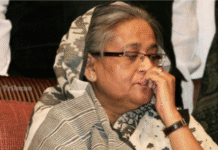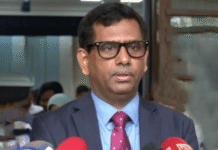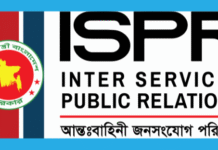
The 2015 US State Department report on human trafficking has again placed Bangladesh in ‘Tier-2’, blaming it for not complying with minimum standards to combat the problem. But it lauded Bangladesh for ‘significant efforts’ to fight human trafficking. This is the fourth consecutive year that Bangladesh has been put in ‘Tier-2’ category. Secretary of State John Kerry released the report on Monday in Washington, and said, “The bottom line is that this is no time for complacency”.
This year’s report places a special emphasis on human trafficking in the global marketplace. It highlights the hidden risks that workers may encounter when seeking employment and the steps that governments and businesses can take to prevent trafficking, including a demand for transparency in global supply chains. This report is the US government’s principal diplomatic tool to engage foreign governments on human trafficking. Each country is placed on one of three tiers based on the extent of their governments’ efforts to comply with the “minimum standards for the elimination of trafficking” enshrined in Section 108 of the Trafficking Victims Protection Act.
According to the report, Bangladesh is primarily a source, and, to a lesser extent, a transit and destination country for men, women, and children subjected to forced labour and sex trafficking. “The government continued to prepare, but did not finalise, the implementing rules for the 2012 Prevention and Suppression of Human Trafficking Act (PSHTA) during the year”. The report says the government lacked a formal mechanism to refer trafficking victims to protective services. Citing an international expert on debt bondage, the report says Bangladeshi families and Indian migrant workers are subjected to bonded labour in some of Bangladesh’s brick kilns. Some kiln owners sell bonded females into prostitution, purportedly to recoup the families’ debts, and some Bangladeshi families are subjected to debt bondage in shrimp farming. Some ethnic Indian families are forced to work in the tea industry in the north-eastern part of Bangladesh, according to the report. The Burmese Rohingya community in Bangladesh is especially vulnerable to human trafficking. The report asked Bangladesh to finalise, adopt and disseminate the implementing rules for the PSHTA, and train government officials to implement it.
It noted that the government made “limited efforts to protect victims of trafficking”. The government reported the rescue of 2,621 human trafficking victims in 2014, an increase from 1,090 in 2013. Because a formal mechanism was lacking to refer victims to care, only nine of the 2,621 victims identified were placed in government-operated shelters.
According to the report, the government made limited efforts to prevent trafficking, and continued to allow Bangladesh Association International Recruitment Agencies (BAIRA) to set extremely high and legal recruitment fees.
The authorities did not exercise adequate oversight to ensure BAIRA’s licensing and certification practices did not facilitate debt bondage of Bangladeshi workers abroad.
The government drafted, but did not finalise and launch, the 2015-2017 national plan of action against human trafficking, the US report said. It also said that the government did not fund anti-trafficking awareness campaigns in 2014, according to bdnews24.com.
Source: The Financial Express









